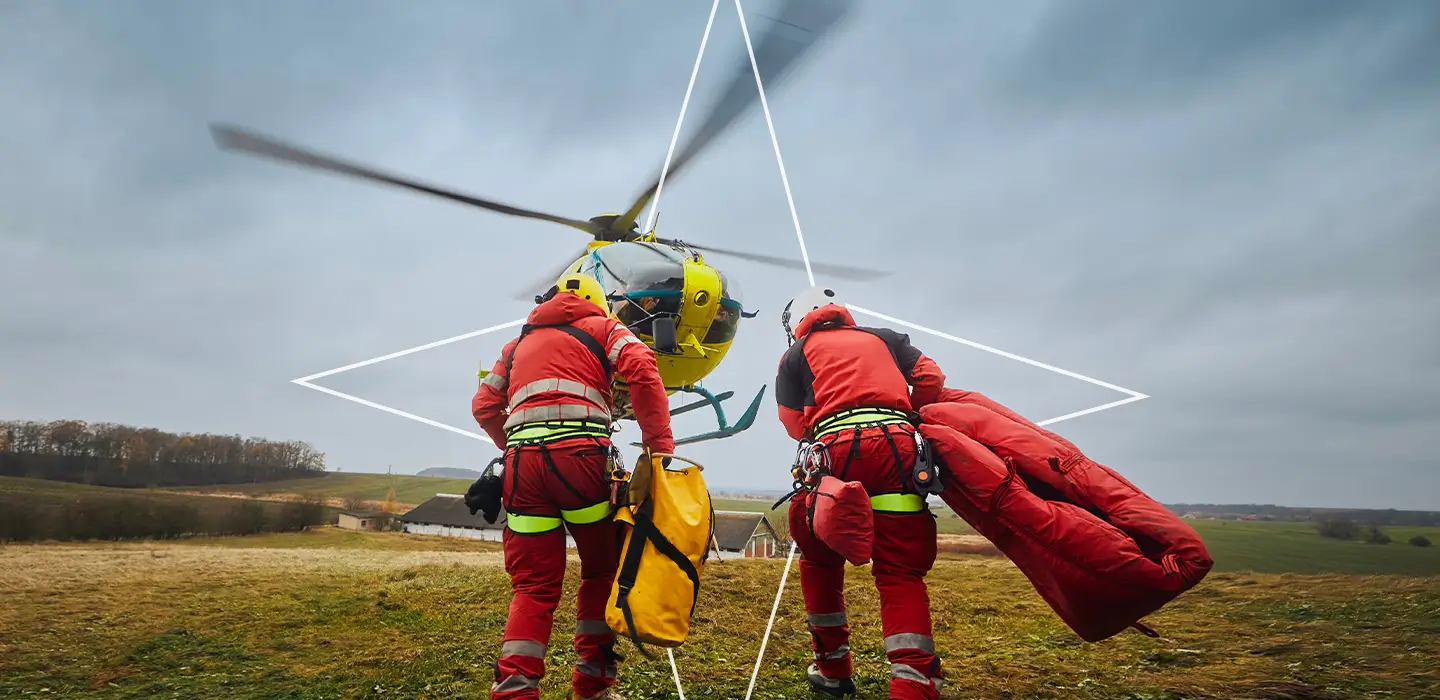When your onshore and offshore exploration takes you far beyond terrestrial coverage, your remote teams require a high-speed and secure communication infrastructure in place, on which they can rely beyond a shadow of a doubt. Satellite connectivity provides just this.
Highly competitive. Highly complex. Low predictivity. The nature of the Energy industry puts profit margins under pressure and shrinks the margin of error for survival.
At the worst of the economic crisis in 2020, investment-grade energy companies were making an operating loss of 104.8%, from a pre-pandemic level of 90.2% (S&P Global Market Intelligence). While most industries’ margins were able to recover in the fourth quarter, the Energy sector depended on aggressive cost-cutting to recover profitability.
One approach to reducing operating costs and increasing efficiency is digitization through satellite connectivity. Especially for the off-shore sector, achieving higher levels of operational efficiency is a must to make progress, and deal with the cost pressures from most of its onshore competitors.
Satellite connectivity in remote offshore sites is key for data-driven technology to function. Similarly maintaining crew welfare requires a reliable and unwavering means of communication with shore-based colleagues, family, and friends. The Oil & Gas industry recognizes the value that technology and innovation can bring about: the potential cost-savings, improved safety, operational efficiency, and overall productivity levels.
Here’s how satellite connectivity drives efficiency.
Exchanging huge amounts of voice, fax, video calls, and data between onshore and offshore teams situated anywhere on the globe, in a fraction of minutes: This real-time information transfer is required for drillers, logging, and seismic contractors, clients, and producers. Monitoring remote assets such as wellheads and pipelines, and sharing real-time sensor data with onshore experts via satellite connectivity, allows for any critical issues to be detected and for predictive maintenance that lowers operational risks.
In the midst of the global COVID-19 pandemic, energy companies are required to ensure that personnel have quarantine for a required duration, before being deployed to offshore locations. This has raised several logistical challenges such as only one critical staff member being granted access. Satellite connectivity enabled solutions are particularly in the spotlight as companies use health monitoring systems that provide on-shore-based clinicians with details regarding remote personnel’s health.
The improvements in satellite connectivity technology have been mirrored in crew welfare. Working offshore can mean that days, weeks, and even months pass by without much meaningful contact with family, friends, and even events and news onshore. Connecting your remote operational sites with satellite connectivity ensures employee morale and productivity. To bridge the digital divide between you and your remote operations, Cygnus offers highly cost-effective voice and data, prepaid and postpay options for any such crew communication needs, with our end-to-end connectivity solutions, flexible service delivery, and system installation and management.
Looking ahead…
The growing demand for real-time data in the offshore industry requires reliable, high-speed, and scalable internet connectivity solutions. The upcoming changes are due to arrive in 2024 with the Thuraya 4-NGS Satellite to be built by Yahsat and Airbus Defence and Space. The new Thuraya Geostationary satellite will replace Thuraya’s two-satellite fleet, refreshing its voice and data network. Thuraya-4 NGS will have significantly more capacity than Thuraya-2 and -3, allowing the introduction of more data-intensive connectivity applications. This means that operators can get increased coverage, high-quality and faster connections more reliably in remote locations, allowing the Oil & Gas industry to efficiently utilize bandwidth and cut costs.
Delivering improved, cost-cutting technologies directly impact profits. The pressures faced by the Energy industry evidently highlight the importance of operational cost-efficiencies to withstand external market changes. To continue offering progressively better welfare services, predictive maintenance, and communicational processes for your remote sites, operators must explore, carefully plan and utilize new communication technologies that suit their needs, and offer their business an edge when it comes to efficiency.










